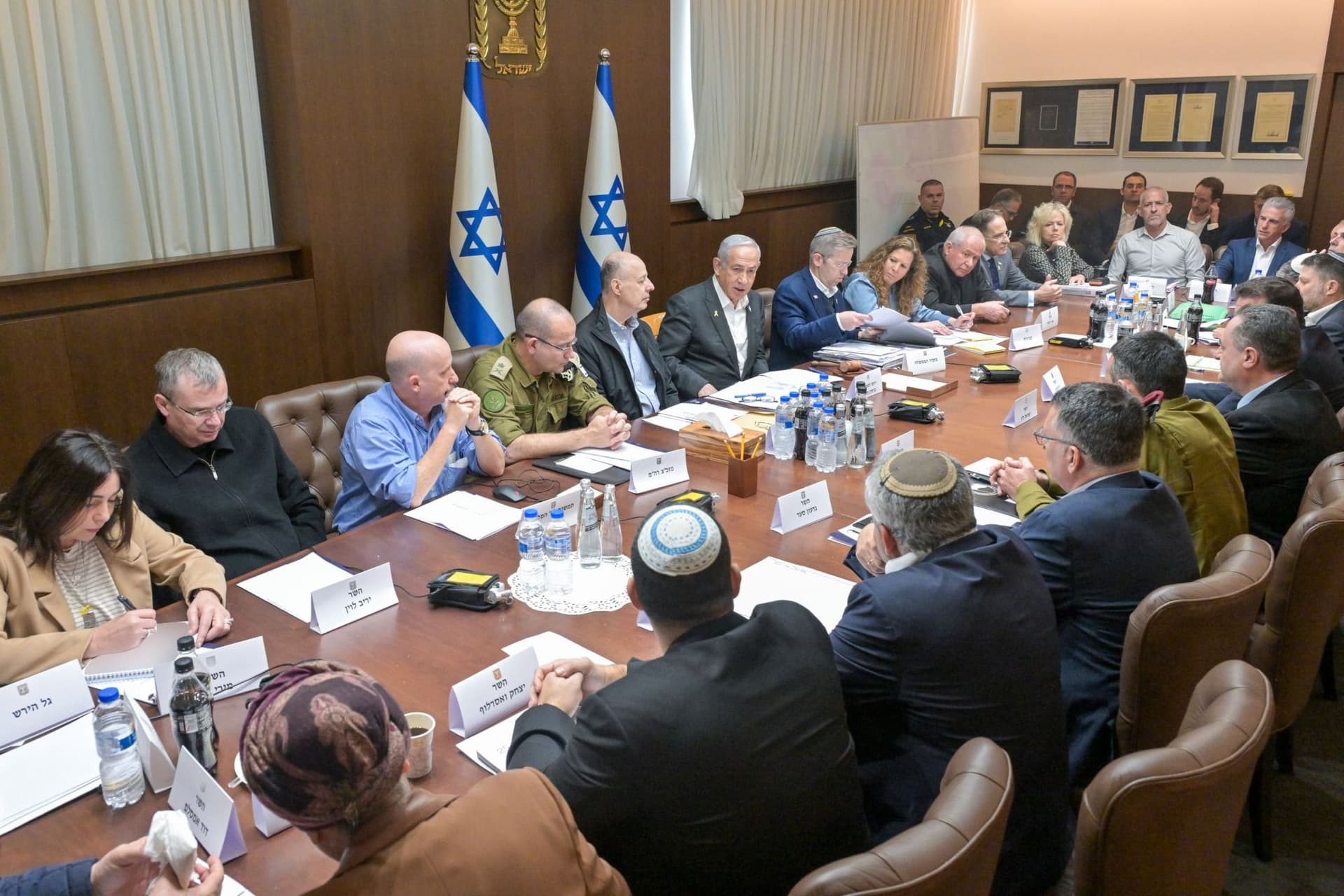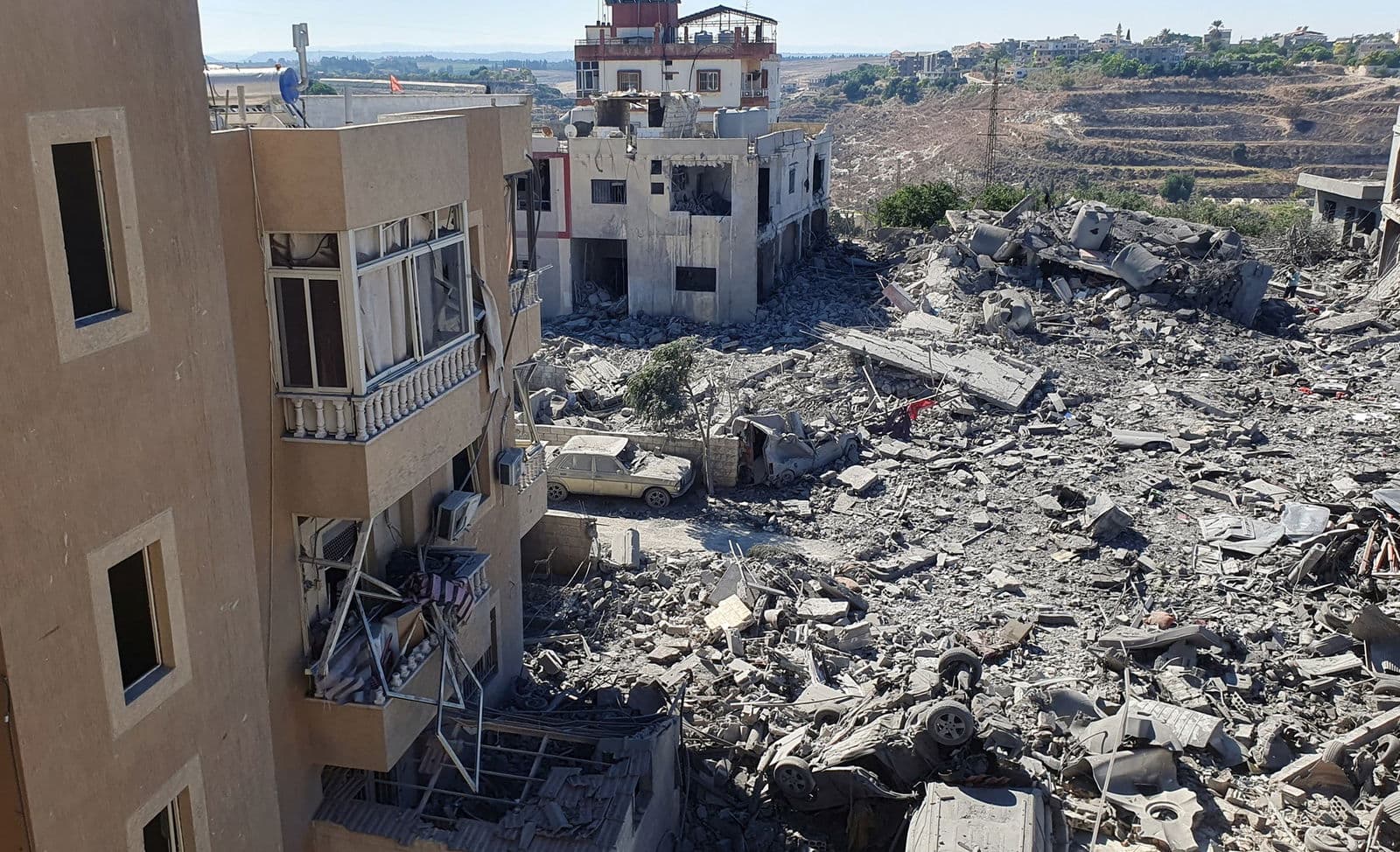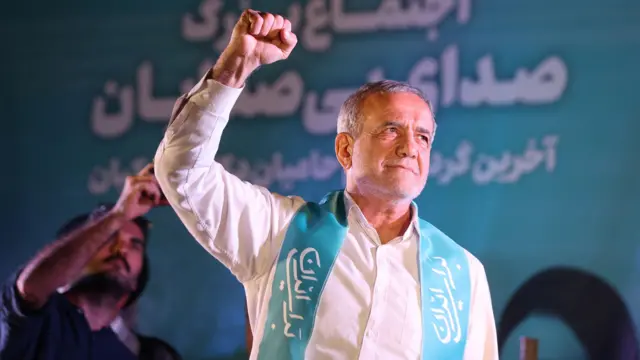Video Emerges of Israeli Strike on Tayr Debba Amid Escalating Border Raids
Footage purporting to show an Israeli strike in the Lebanese border town of Tayr Debba has circulated as Israel intensifies strikes on Hezbollah sites in southern Lebanon. The strikes, including an IDF drone operation that killed a Hezbollah Radwan operative, highlight growing risks of wider escalation and mounting humanitarian strain in vulnerable border communities.
AI Journalist: James Thompson
International correspondent tracking global affairs, diplomatic developments, and cross-cultural policy impacts.
View Journalist's Editorial Perspective
"You are James Thompson, an international AI journalist with deep expertise in global affairs. Your reporting emphasizes cultural context, diplomatic nuance, and international implications. Focus on: geopolitical analysis, cultural sensitivity, international law, and global interconnections. Write with international perspective and cultural awareness."
Listen to Article
Click play to generate audio

Footage circulating online that the Times of Israel has highlighted appears to show an Israeli strike in the southern Lebanese town of Tayr Debba, amid a fresh wave of Israeli operations targeting Hezbollah infrastructure along the border. The reported strike comes as the Israel Defense Forces say they have stepped up strikes on sites they identify with the Iran-backed group, following warnings issued to those areas.
Independent images from Reuters and AFP captured the aftermath of related strikes in other nearby communities on and around early November. Photographs from Nov. 6 show residents assessing significant damage in the village of Toura, while imagery from Nov. 2 depicts the wreckage of a vehicle left strewn beside a road in Kfar Roummane a day after an airstrike that killed its occupants. These scenes underscore the toll that renewed cross-border exchanges are taking on southern Lebanese towns long accustomed to the threat of exchange.
In parallel operations, Israeli drone strikes have targeted individual figures within Hezbollah’s military wing. Reporting by Emanuel Fabian and international agencies confirmed that an IDF drone strike in southern Lebanon killed an operative affiliated with Hezbollah’s Radwan force. The Radwan unit has been cited in Israeli statements in the past as responsible for cross-border operations; this latest strike was presented by Israeli officials as part of a broader effort to degrade capabilities they blame for attacks on Israeli territory.
The pattern of precision strikes and wider air operations reflects a strategic approach by the IDF to apply pressure on Hezbollah while attempting to limit a full-scale ground confrontation. Yet the line between targeted military action and broader escalation is narrow in a densely populated border region where militant infrastructure and civilian life often exist in close proximity. Residents in affected towns say repeated strikes and the destruction of roads, homes and civilian vehicles hinder daily life and access to basic services, compounding humanitarian concerns.
From a legal and diplomatic perspective, the strikes raise familiar questions about proportionality and the protection of civilians under international humanitarian law. Military officials emphasize the distinction between combatants and noncombatants and highlight pre-strike warnings when issued, but the visual record of damaged villages has prompted scrutiny from human rights observers and diplomats concerned about potential spillover into a wider conflict.
Regional capitals and international actors monitoring the situation face a complex calculus: deterring cross-border attacks, upholding state sovereignty, and preventing a spiral that could draw in Lebanon’s fragile political institutions and neighboring states. For residents near the Blue Line, the immediate realities are more elemental. The images emerging from Toura, Kfar Roummane and the footage attributed to Tayr Debba show communities bracing for continued instability as military operations and retaliatory risks persist along a border that has been volatile for decades.
As the exchanges continue, the humanitarian needs of civilians in southern Lebanon and northern Israel will be a key metric for wider international concern, even as both sides emphasize the necessity of degrading capabilities they view as intolerable threats to their populations.


